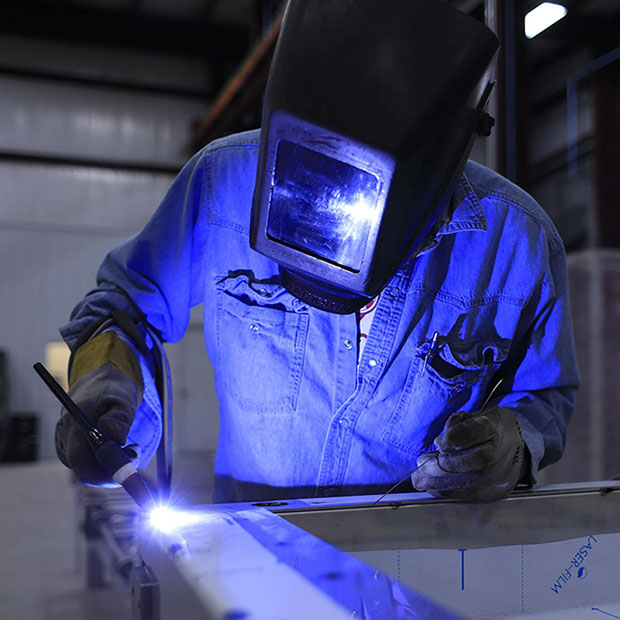Eye Safety in the Workplace

For Workplace Eye Wellness Month, we’re giving you a guide to protecting your eye health at work!
Obviously, eye safety will mean something very different depending on the type of work you do. Working on a computer is very different from working at a worksite, so we’re dividing the tips into two categories; one for office-type jobs and another for jobs heavy on physical labor.
Eye Safety at a Worksite
Many jobs involved in repair, maintenance, and construction can pose a significant eye safety risk. Welders, carpenters, miners, and chemists working in labs are all at risk in different ways, to the point where 2,000 workers in jobs like these need treatment for eye injuries every day.
That’s way too many daily eye injuries, especially considering that 90% of them are preventable if everyone uses the right eye protection equipment. Before you start working, make sure to put on the safety goggles, glasses, full-face respirator, or face shield for welding. This equipment may well save your eyesight!
Maintaining Healthy Eyes in the Office
In an office job, the risk of projectiles or chemicals flying into your eyes is much lower, but there is a major risk of developing digital eye strain (also known as computer vision syndrome) after spending many hours a day staring at a computer screen. Common symptoms include dry eye, neck pain, back strain, more frequent headaches, and reduced attentiveness.
While digital eye strain isn’t connected to long-term damage to eye health, it can be unpleasant enough in the short term as it leaves the eyes tired and irritated and makes it harder to focus on the tasks you’re trying to complete. So how do we deal with digital eye strain?
Defeating the Strain
It doesn’t take protective goggles or face shields to fight eye strain (though some people do get a lot out of wearing computer glasses, which block blue light, or they use an anti-glare screen).
The simplest steps we can take to give our eyes some rest is to angle our screens properly (they should be a arm’s length from our faces and tilted so that the middle of the screen is slightly below eye level) and to follow the 20-20-20 rule (take a 20-second break every 20 minutes and focus on something 20 feet away.
Come to Us With Your Workplace Eye Safety Concerns
We’re happy to answer any of your questions or check to make sure everything is healthy if you’re concerned about the risk of eye injury or strain in your workplace. We want to give our patients all the information they need to protect their eyes effectively. We’d also love to see you if it’s been a long time since your last appointment!
